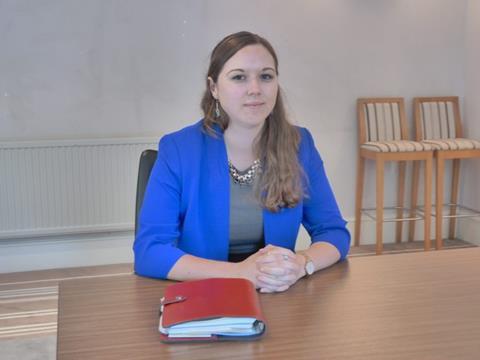Katie Doherty, the policy director at the International Meat Trades Association, is weighing in on the debate around Authorised Economic Operator status and whether it could assist post-Brexit trade with the EU.

As the December European Council meeting looms, UECBV (the European Meat & Livestock Trading Union) has launched a report on the impact of a hard Brexit on the EU 28 meat sector.
The report highlights the truly interdependent nature of the European meat sector. Different cuts go to different markets within the EU and the UK takes particular ones making the balancing act work.
This interdependency is why the EU28 meat sector under the umbrella of UECBV are agreed on some key principles for future trading arrangements between the UK and EU. The report calls for a deal that achieves trade arrangements that are as close to the current terms as possible as well as a transition period that enables businesses to adapt to any changes.
Companies need certainty soon. This includes confirmation of the future customs and tariff arrangements and whether there will be vet checks or tariffs for meat exported from the UK to the EU or EU to UK.
For meat, the best case scenario (a situation akin to what we have now) and the worst case scenario are worlds apart and this makes business planning extremely challenging. Not only does the future trading relationship need to be negotiated but also when any changes to the existing trading system are decided, these must be clearly communicated to businesses, ideally well in advance.
In the absence of certainty there is some misinformation filling the void. I have attended various conferences and forums where AEO (Authorised Economic Operator) status is being banded around as the magic bullet for any potential Brexit problems.
AEO is a customs accreditation which certifies your company a secure supply chain actor and/or (depending on the type of AEO) allows you to access certain customs facilitations.
However, it does not negate the need for veterinary (or other sanitary and phytosanitary) checks as it is not recognised by veterinary authorities, neither Defra in the UK nor DG Sante in the EU.
Owen Paterson has made a number of comments claiming that AEO would facilitate the movement of agri-food across the Northern Irish border. Some type of trusted trader scheme has the potential to facilitate trade in this area in the future but AEO as it stands today would not resolve all issues for agri-food moving across borders.
Furthermore, the EU would have to recognise any UK trusted trader scheme in the other direction to facilitate our exports. At present only 600 companies in the UK have AEO for rest of world trade and predominantly these are transport providers.
Companies need to think very carefully about whether AEO is right for their company as I am concerned that AEO could be the next PPI…being mis-sold as the solution to Brexit challenges. AEO should be considered where companies want to use customs procedures such as inward processing and to reduce the need for a substantial financial guarantee but not in the hope of having check-free movement across a border.
I spoke at a Customs Compliance conference recently where there was a lively debate on the subject and there were many others that shared concerns that the benefits of AEO were being misconstrued by some.
This story was originally published on a previous version of the Meat Management website and so there may be some missing images and formatting issues.















